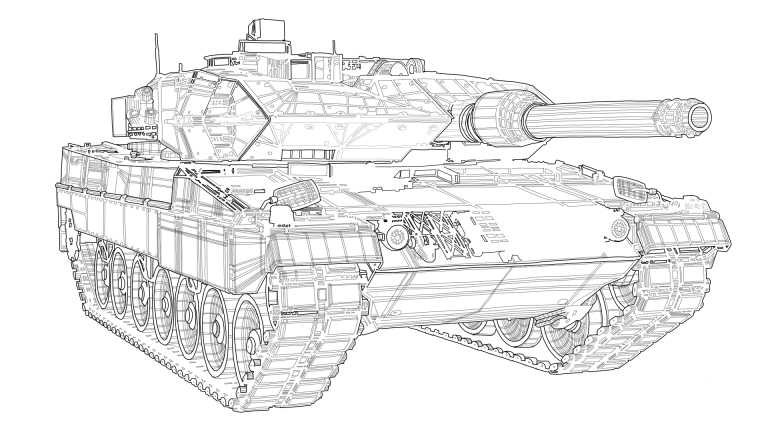The original GTA's tank was a pedestrian bolted onto a car
Tanks for the memories.

Stewart Waterson, an artist at DMA Design in the 1990s, shared some behind-the-scenes stories about his work on the original Grand Theft Auto at Gamerhub. He explains how he landed the job (an art director saw his work as part of an exhibition and asked to talk to whoever did "all the weird shit"), and how he and coder Ian Johnson pushed for what was originally a driving game Race'n'Chase to be about crime.
Waterson explains the addition of tanks was a turning point in GTA's focus shifting to sandbox rampages. "It was so ludicrous", he says. "There was no reason for them."
During a lunch break, Waterson and Johnson took what began as a joke and figured out how to make it work in a game that was never meant to support it. "The premise was that there was a vehicle code that we could use," he says, "and there was also a ballistics code that allowed a rotating pedestrian to shoot bullets in eight directions. Our idea was that if you put a pedestrian on top of a car, and made the car go slower and massively increased the damage of the bullets, then you've got a basic version of a tank."
It's a classic ingenious dev trick, reminiscent of the way a moving train was kludged into Fallout 3 by making it an armor piece that sits above the head of an NPC invisibly traveling beneath the level. "The turret was like a player character sat on top of a car that could move independently," Waterson says, "allowing the player to drive the vehicle, aim the turret, and fire."
Waterson and Johnson stayed back after everyone else had left to sneak the tanks in, thinking "we're going to get our asses kicked for this tomorrow." The next day, he arrived at work to hear a ruckus on the other side of the office. "A bunch of testers and team mates who had gotten in early were playing with the tanks. And they were having an absolute blast, literally." They liked the tanks so much they stayed, and became a core part of the series' appeal into the 3D era.
The tanks were one of several features never planned to be part of Grand Theft Auto that helped it become the game of freeform chaos it remains at its best. As Waterson says, "whilst we had to conform to some accepted norms in game design, that core kernel of absolute mayhem – wanton destruction – was forced into the game by the teams who controlled those key parts. We would fight to try and get a chance to make it happen, and if it got turned down, we'd just fucking do it anyway."
For another blast from the past, here's a BBC interview in the DMA Design office from 1996, while GTA was in development.
The biggest gaming news, reviews and hardware deals
Keep up to date with the most important stories and the best deals, as picked by the PC Gamer team.
#OnThisDay 1996: Rory Cellan-Jones was busy distracting the developers of a new game called Grand Theft Auto. GTA didn't ship in 1996. Thanks Rory. pic.twitter.com/SihuPGhKgEMay 16, 2019

Jody's first computer was a Commodore 64, so he remembers having to use a code wheel to play Pool of Radiance. A former music journalist who interviewed everyone from Giorgio Moroder to Trent Reznor, Jody also co-hosted Australia's first radio show about videogames, Zed Games. He's written for Rock Paper Shotgun, The Big Issue, GamesRadar, Zam, Glixel, Five Out of Ten Magazine, and Playboy.com, whose cheques with the bunny logo made for fun conversations at the bank. Jody's first article for PC Gamer was about the audio of Alien Isolation, published in 2015, and since then he's written about why Silent Hill belongs on PC, why Recettear: An Item Shop's Tale is the best fantasy shopkeeper tycoon game, and how weird Lost Ark can get. Jody edited PC Gamer Indie from 2017 to 2018, and he eventually lived up to his promise to play every Warhammer videogame.

